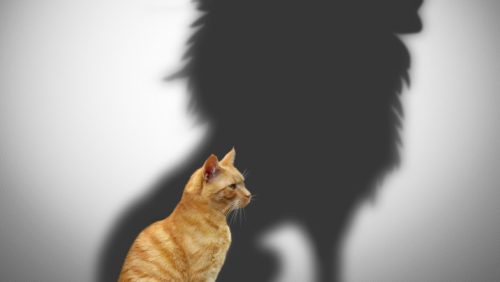
Bravery is generally thought of as an ability to maintain calmness and composure in the face of danger, especially in the context of going forward into that danger for the sake of achieving some moral goal. It’s almost univerally thought of as a highly desirable personal quality and usually thought of as a masculine one. Originally bravery referred to physical courage, but, as this essay will show, there are at least three major perspectives that one can take on the concept.
These three perspectives translate into the perspectives of iron, silver and gold if one takes the approach of elementalism or esoteric alchemy. These can be thought of as forms of bravery that evolved from a successful resolution of the challenges that led to the previous form.
The form of bravery that corresponds to the iron is the simplest and most universally understood of the four orientations. Here the iron responds to upwards – a form of bravery that is oriented up the dominance hierarchy, towards one’s parents, one’s boss or the local king. Here, being brave is a matter of standing up to those who would try and hurt you.
This orientation of bravery is usually understood in a martial sense, and indeed we can see that Mars, which represents iron, gives us the etymological origin to words like ‘martial’. In the context of esoteric alchemy, ‘martial’ means ‘like the iron’ and therefore reflects a sense of being sharp, strong and unyielding.
As a warrior proves his bravery in the arena of iron (by whatever means) and succeeds in keeping dependents safe, he naturally comes to take on a shine, which represents his entry into the arena of silver. He learns that keeping the peace is as much a question of diplomacy as it is a question of beating the shit out of people, and he finds that he no longer needs to orientate himself up so much.
This form of bravery is the form of bravery that goes outwards. In the same way that a given volume of silver can cover more area, when hammered flat, than the same volume of iron, the bravery of the man of silver is that which orients itself over a wide area.
Once a great warrior comes to take responsibility for his tribe and becomes a chief, the next step up the hierarchy of silver is to take responsibility for a wider and wider geographical area. This is natural as long as he continues to shine, because this will cause people from far and wide to seek his judgment and mediation.
The bravery involved here is not so much slaying dragons and more a will to confront the real nature of the physical world and to strive towards its mastery. This means the real nature of the world in terms of its physics, chemistry, mathematics, biology and related disciplines, as well as statecraft.
When the man of silver moves beyond his prime years for taking responsibility for his people, he enters the arena of gold. Gold represents the form of bravery that goes inwards. This is like gold because it is the rarest and most precious form of bravery.
A person who orients their bravery inwards learns to make peace with God, which is the hardest thing of all to achieve because this orientation has the fewest biological instincts giving it power. Biological instincts are not generally concerned with bravery in general, because that is a moral orientation – they are concerned with survival and dominance.
One reason why this form of bravery is so rare is that not everyone understands that it takes bravery to truly look within – but it does. It takes a lot of bravery to look into your own soul and to ask yourself if you are truly good or evil, or if such things really exist. It takes incredible bravery to really truly ask yourself if you can be comfortable saying goodbye to all of your attachments with this world upon the moment of your physical death.
The three orientations of bravery, therefore, relate to the challenges that naturally faced people in the historical past as they overcame the dangers of their environment.
